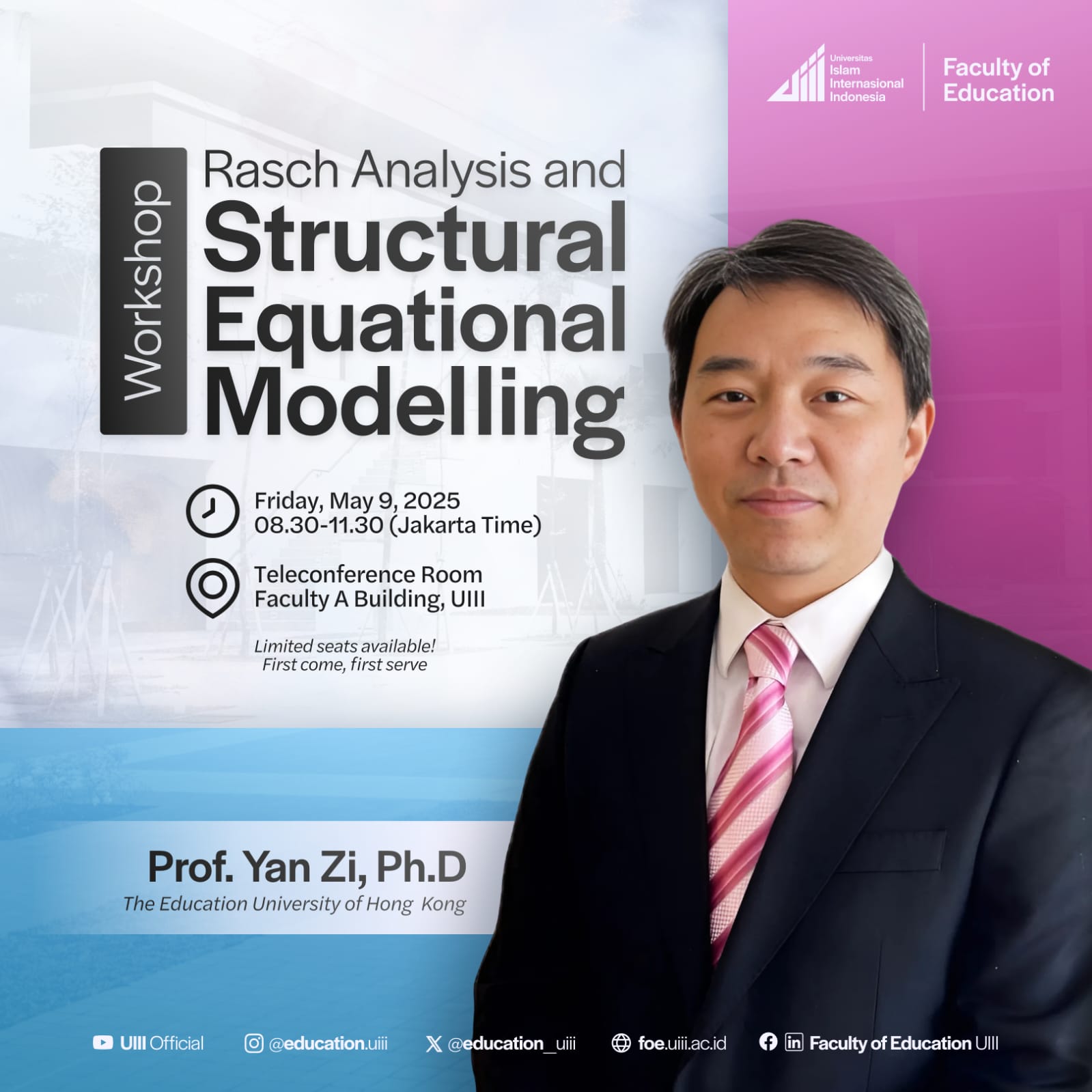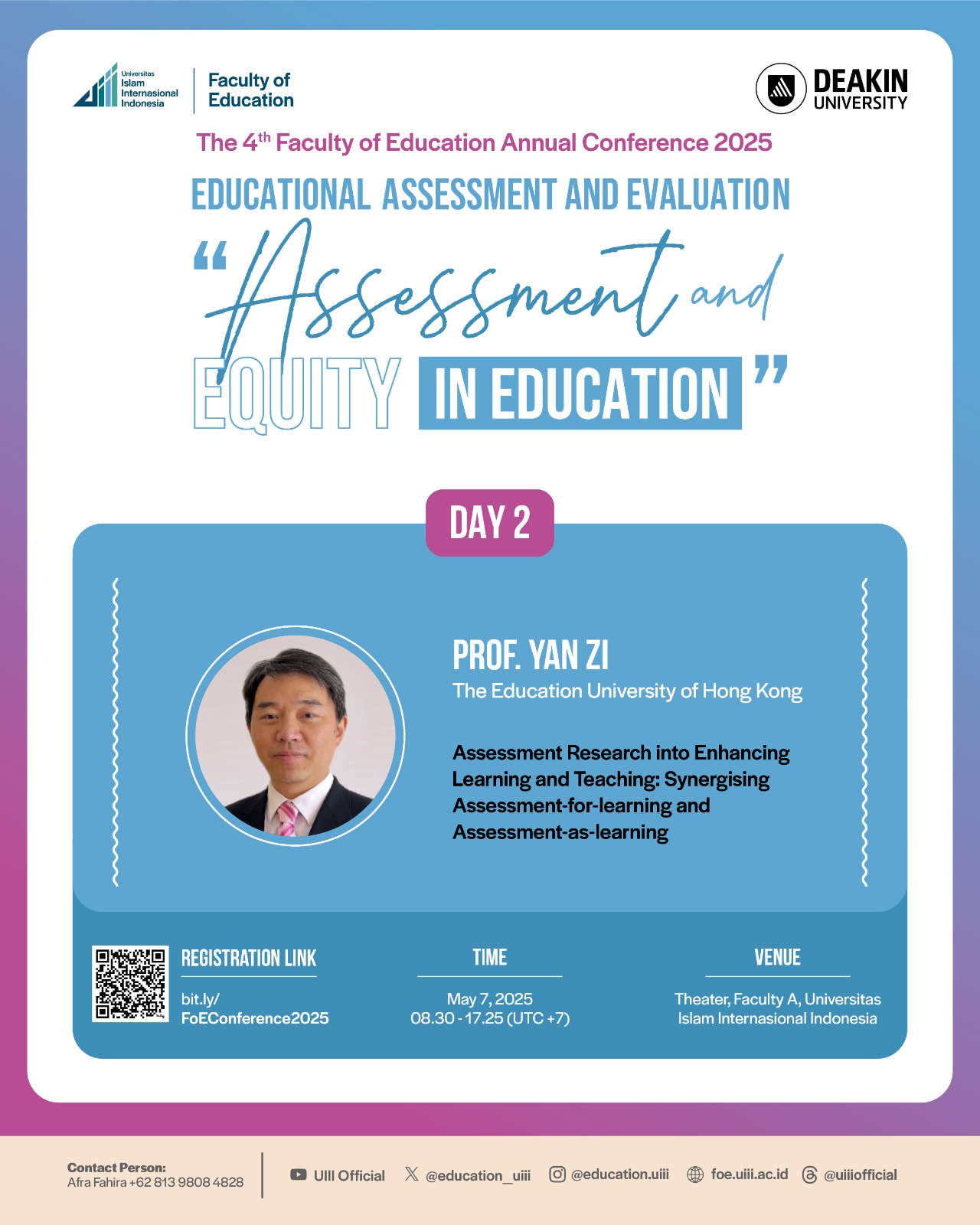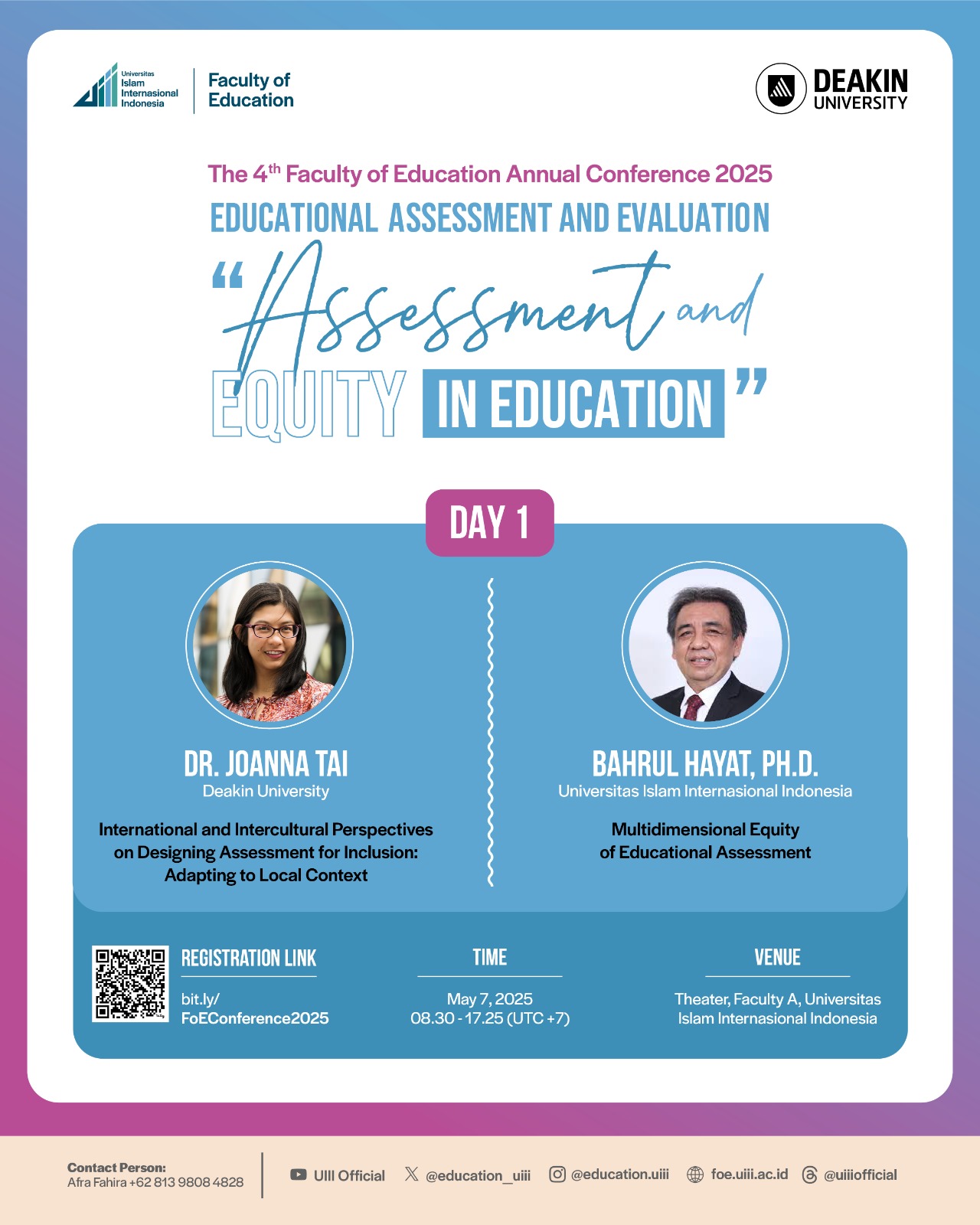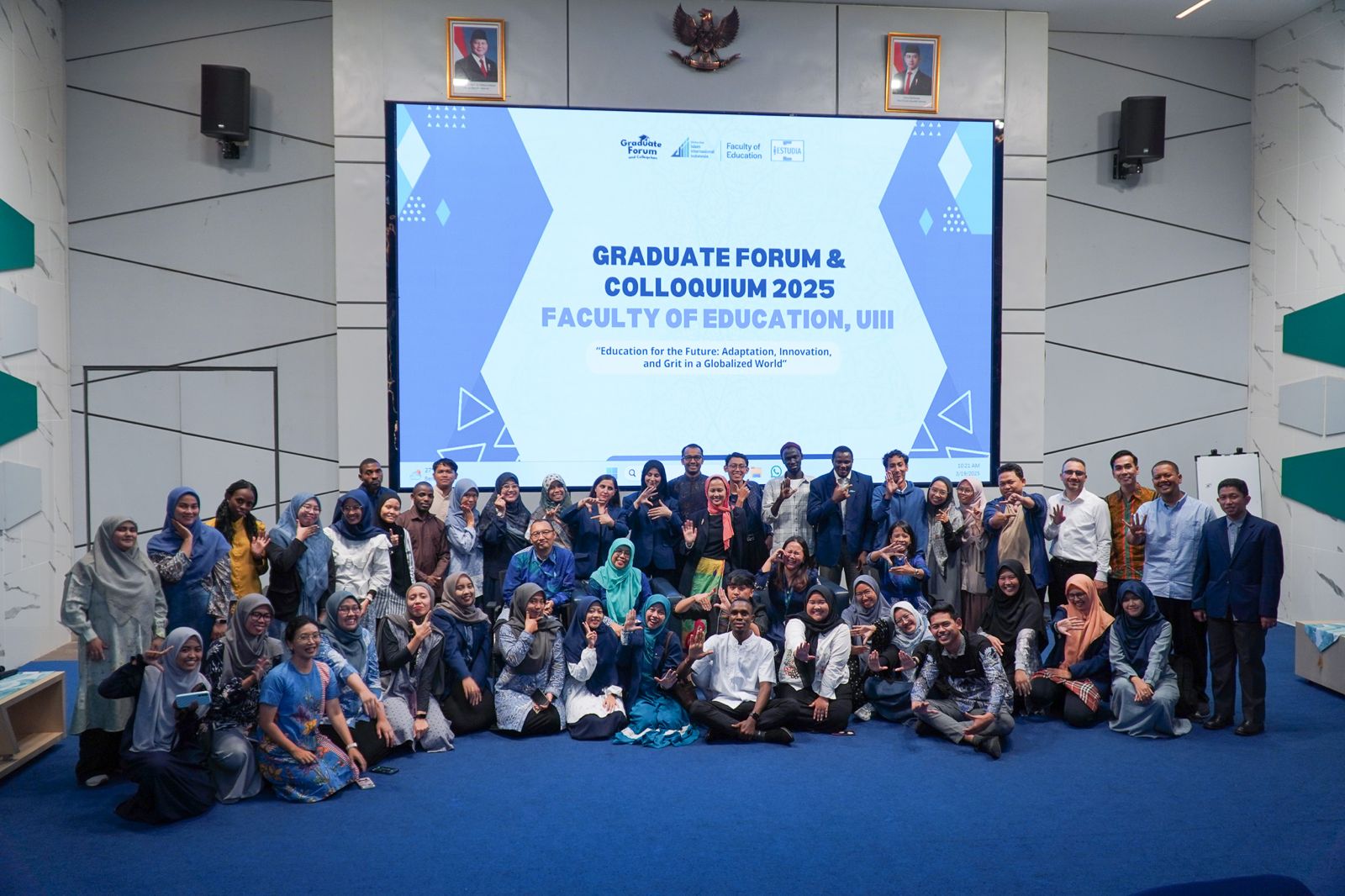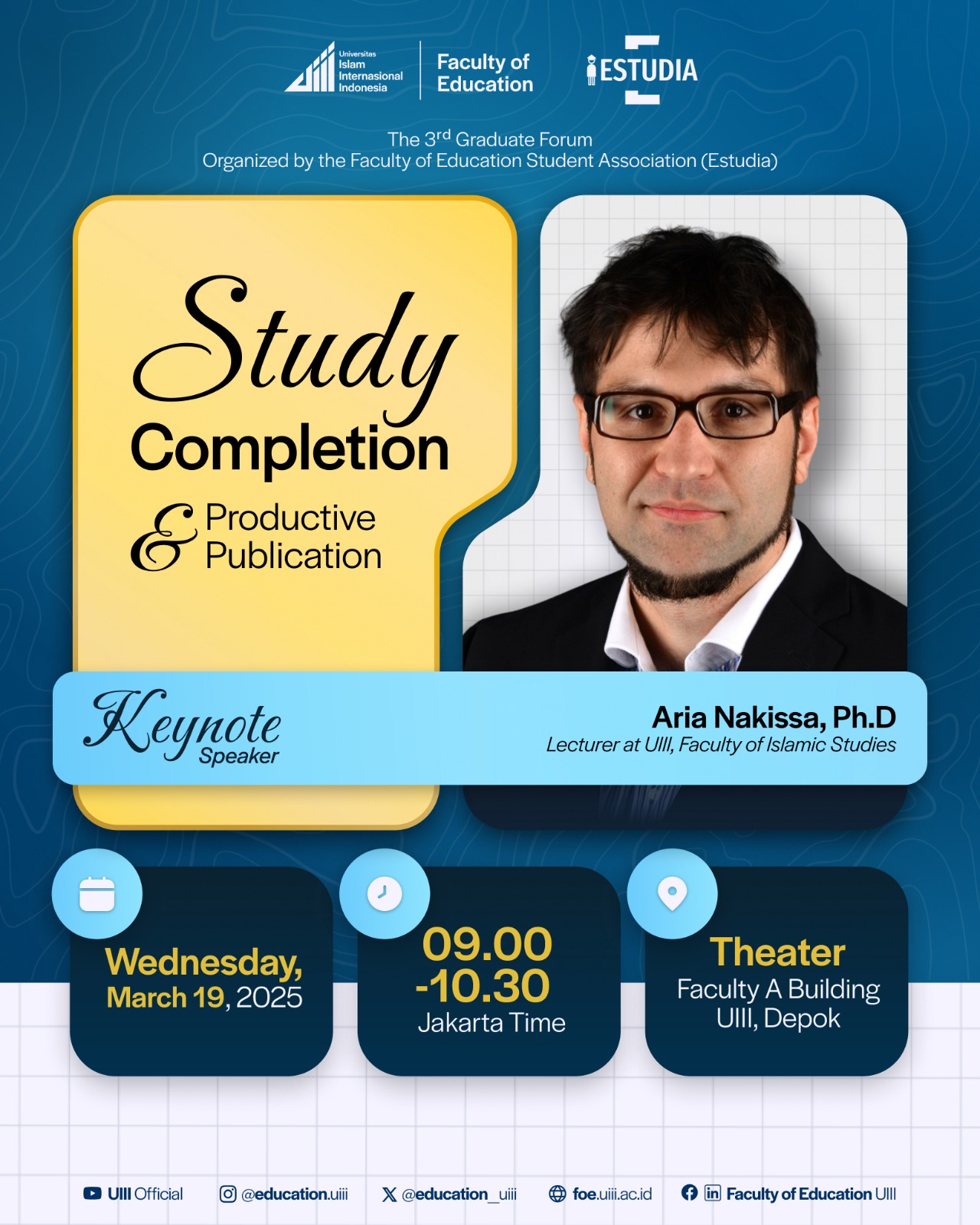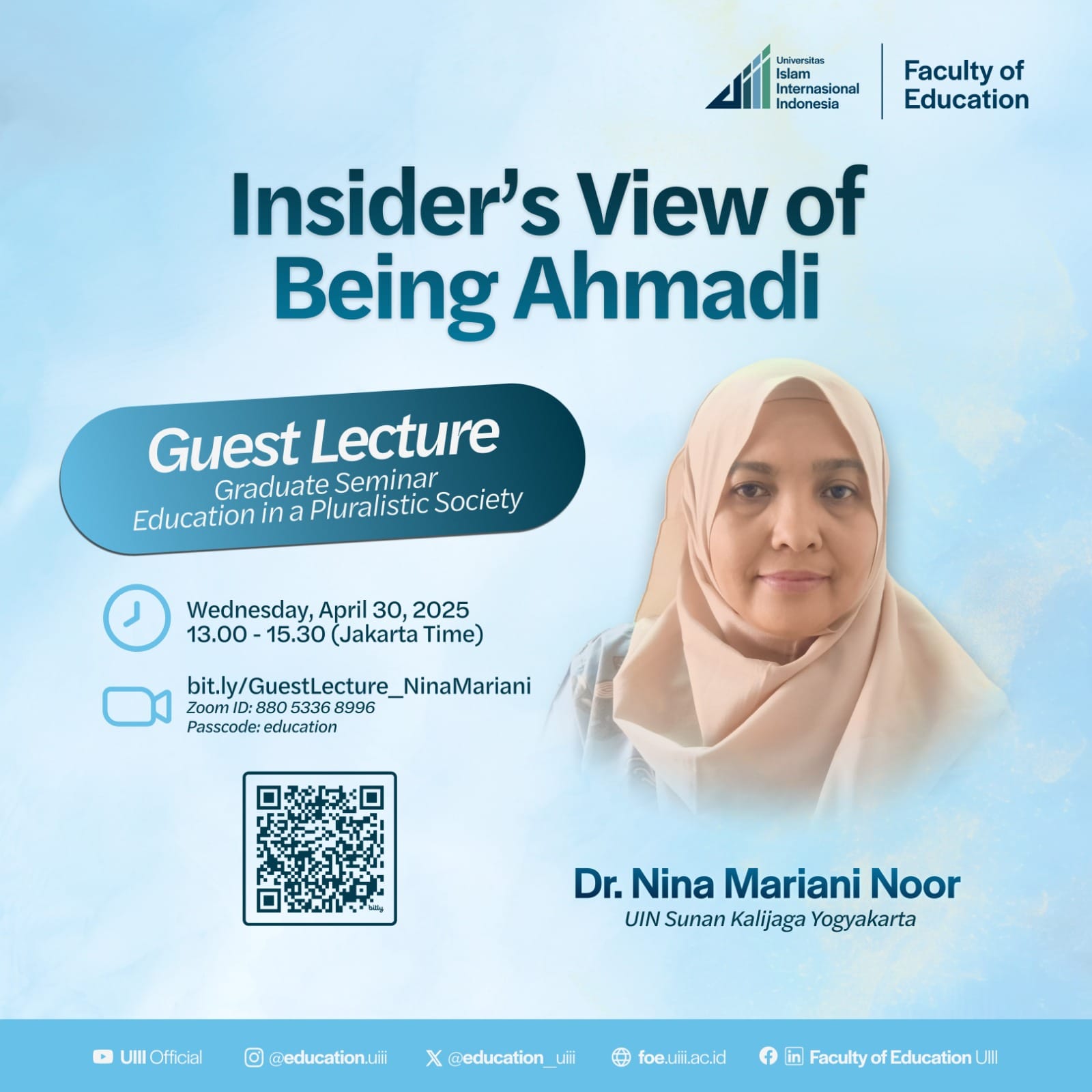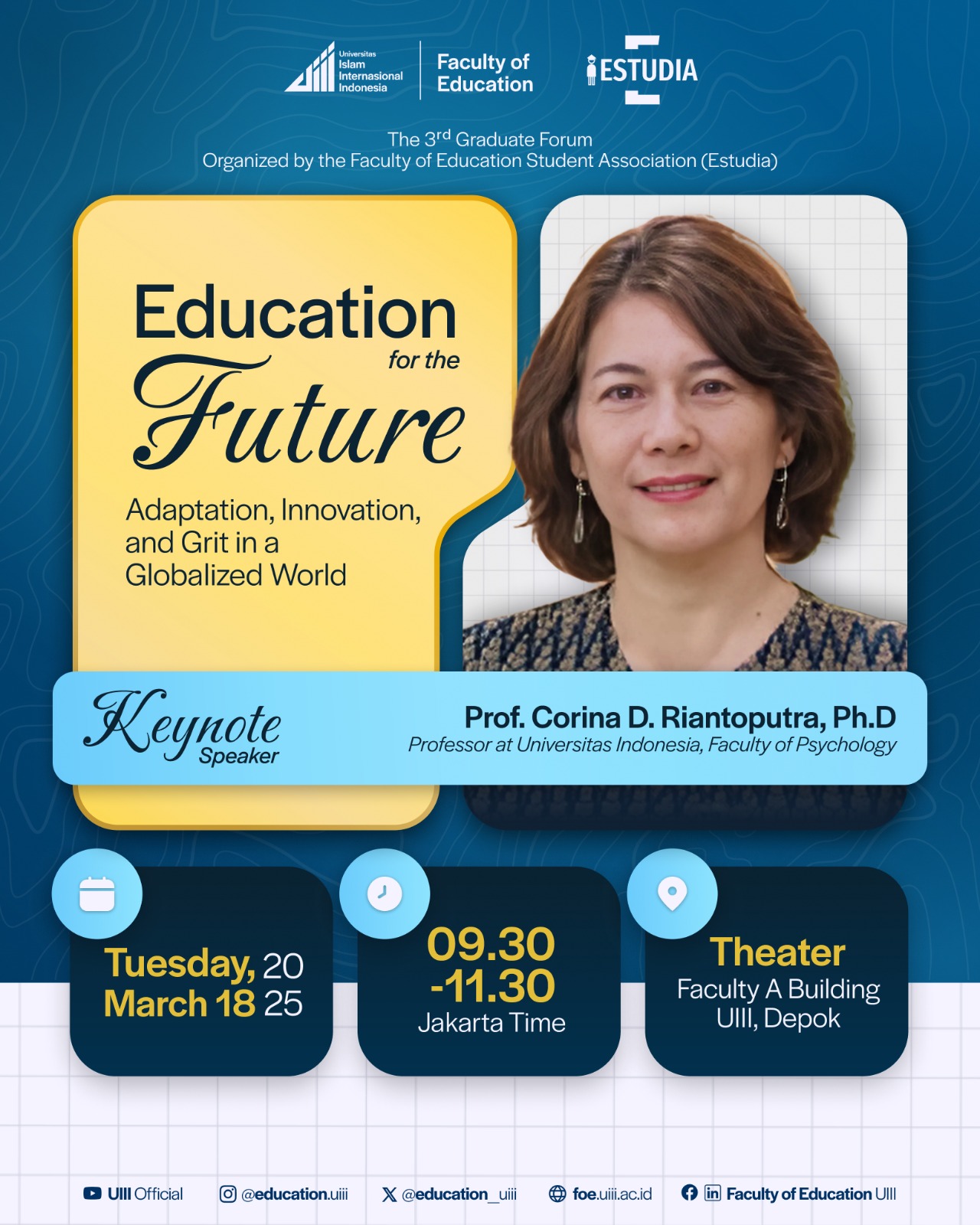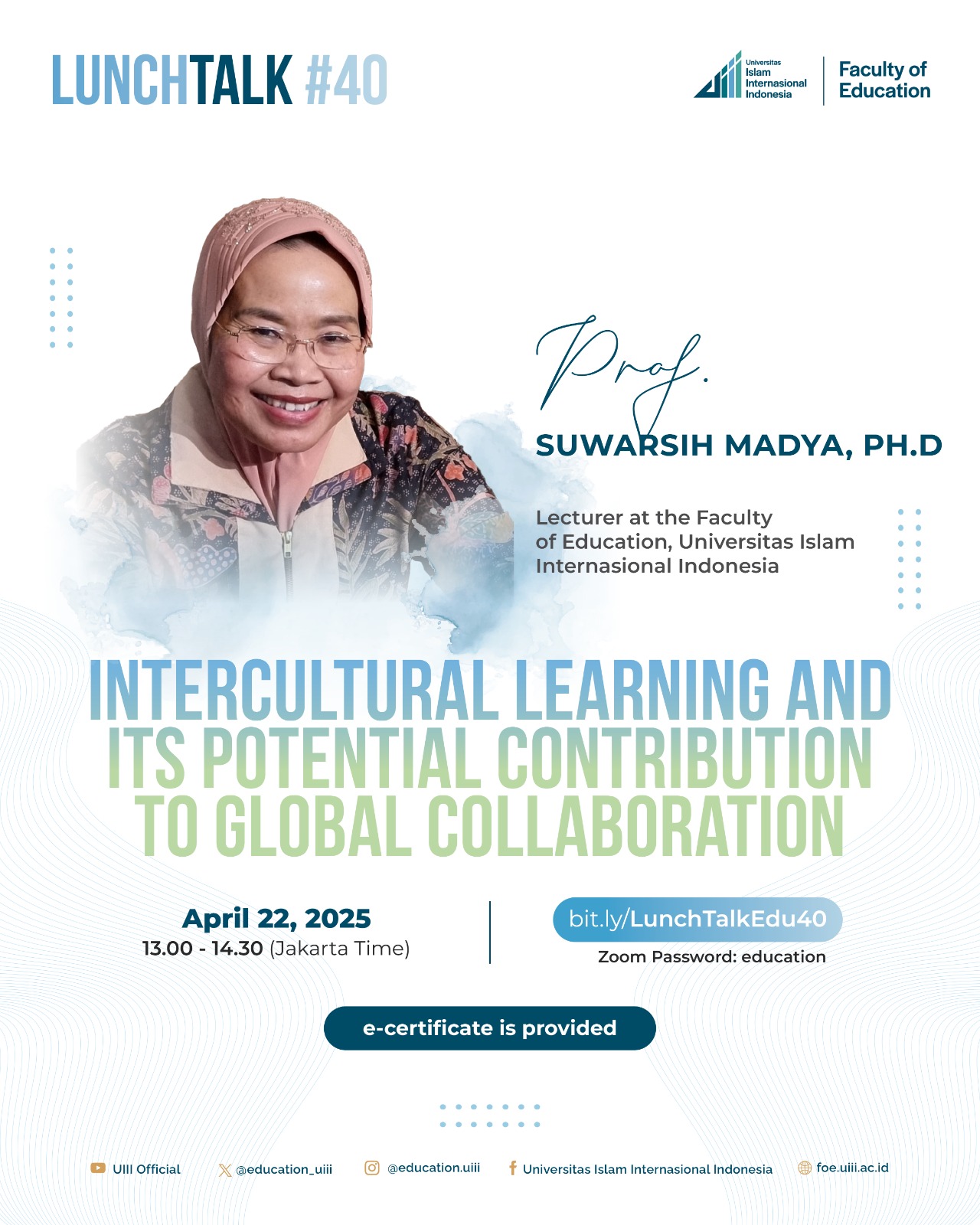Grit, Innovation, and Adaptation: Key Themes in FoE’s 3rd Graduate Forum for Education Future

Grit, Innovation, and Adaptation: Key Themes in FoE’s 3rd Graduate Forum for Education Future
March 24, 2025
Contributor: Supriyono | Editor: Dadi Darmadi | Photo: Virda Lalitya Umam
The Faculty of Education (FoE) at Universitas Islam Internasional Indonesia (UIII) has successfully hosted its 3rd Graduate Forum & Colloquium on March 18-19, 2025, at the UIII Campus in Depok, West Java. Themed "Education for the Future: Adaptation, Innovation, and Grit in a Globalized World," the event convenes graduate students to explore the dynamic evolution of education.
In her opening address, Assoc. Prof. Charyna Ayu Rizkyanti underscored the forum's relevance, stating, "talking about the future—who can truly predict it? We’re witnessing the world changing very fast. However, if there’s one thing that we know for sure, education will always be at the heart of how we navigate this uncertain future,” she said.
She emphasized the indispensable role of adaptation, innovation, and grit in modern education, explaining that adaptation ensures survival, innovation drives progress, and grit fortifies resilience in the face of adversity.
Meanwhile, Prof. Nina Nurmila, Dean of the Faculty of Education at UIII, highlighted the forum's function in equipping the students for academic dissemination. She remarked, "This serves as a vital rehearsal for you—to present your research and articulate your ideas to a broader academic audience." Prof. Nurmila also emphasized the significance of timely study completion and scholarly productivity, urging students to remain diligent in their academic publications and maintain the tradition of graduating together onetime.
The forum featured two distinguished keynote speakers. On the first day, Prof. Corina D. Riantoputra, a psychology lecturer from the University of Indonesia, explored the primary theme, "Education for the Future: Adaptation, Innovation, and Grit in a Globalized World." On the second day, Aria Nakissa, Ph.D., from UIII's Faculty of Islamic Studies, presented "Study Completion and Productive Publication," aiming to inspire students and faculty members to achieve timely graduation and maintain a robust academic publication record.
Organized by the Education Student Association (ESTUDIA), the forum also marked the inauguration of ESTUDIA’s new leadership cabinet, with Mukhamad Imron Rosadi, an MA in Education student from batch 4, assuming the role of president.
The 3rd Graduate Forum & Colloquium serves as a dynamic platform for participants to engage in intellectual discourse, exchange insights, and challenge prevailing perspectives, embodying the ethos of shaping the future of education in an era of rapid transformation.
Balancing School and Part-Time Work: An Exploratory Study of AfghanElementary School Students
 Samadi, H., Rahimi, M., & Ghafoori, L. (2025). Balancing School and Part-Time Work: An Exploratory Study of Afghan Elementary School Students: Balancing School and Part-Time Work: An Exploratory Study of Afghan Elementary School Students. International Journal of Education & Well-Being , 3(1). https://doi.org/10.62416/ijwb-53
Samadi, H., Rahimi, M., & Ghafoori, L. (2025). Balancing School and Part-Time Work: An Exploratory Study of Afghan Elementary School Students: Balancing School and Part-Time Work: An Exploratory Study of Afghan Elementary School Students. International Journal of Education & Well-Being , 3(1). https://doi.org/10.62416/ijwb-53
Abstract
Prolonged conflict and socio-economic hardships have overwhelmingly impacted families in Afghanistan, coercing them to depend on their underage children as financial contributors. The current research explores the intricacies between elementary school students balancing education and employment in the Afghancontext (aged 8-13) juggling both school and part-time jobs. Adopting a phenomenological approach, the study investigates the day-to-day experiences of these students employing a semi-structured interview and purposive sampling in accordance with Clarke and Braun's reflexive thematic analysis. The analysis identified three principal themes: challenges, experiences, and coping mechanisms. Students confronting challenges, irregular school attendance due to working demands, family financial issues, and psychological stresses. Their experiences indicate important physical and psychological toll which incorporates fatigue, and most importantly academic impediments such as missed assignments, and daily struggles. Task prioritization and time management are generally confined to the coping mechanism to overcome them. These findings provide a solid evidence base for tailored interventions and international aid to address and alleviate these students’ burden. This research can contribute to a better understanding ofthe dual burden of labor and education confronted by Afghan children to spotlight the urgency for a thorough policy response.
Self-handicapping scale: evaluation of psychometric properties among Malaysian and Indonesian university students using Rasch rating scale model analysis

Sumintono, B., Law, M.Y. and Sitasari, N.W. (2025). Self-handicapping scale: evaluation of psychometric properties among Malaysian and Indonesian university students using Rasch rating scale model analysis. Journal of Applied Research in Higher Education. https://doi.org/10.1108/JARHE-08-2024-0429
Abstract
Purpose – This study aimed to evaluate the psychometric properties of SHS in Malaysian and Indonesian university students’ populations using the Rasch Rating Scale Model.
Design/methodology/approach – Specifically, the persons’ and items’ reliability and separation, rating scale’s functionality, unidimensionality, item targeting, item quality and item bias were evaluated using Winstep 4.8.1.0 on a sample of 318 Malaysian and 470 Indonesian university students.
Findings – Both samples show good unidimensional measures. In terms of certain psychometric attributes, the Indonesian and Malaysian samples have relatively similar qualities. The adoption of SHS in measuring the selfhandicapping tendency indicates the scale works well for both Indonesian and Malaysian samples. Practical implications – The findings allow researchers in Malaysia and Indonesia to confidently use the SHS to measure self-handicapping behaviours among university students. This will then enable the design and implementation of a comprehensive intervention programme aimed at reducing self-handicapping and improving the psychological well-being of these future change agents in both countries.
Originality/value – This instrument was first tested in the United States, but its psychometric properties have yet to be evaluated in Malaysia and Indonesia.
Keywords Self-handicapping, Self-handicapping scale, Psychometric properties, Rasch rating scale model, University students
Paper type Research paper
Lunch Talk #40: Intercultural Learning and Its Potential Contribution to Global Collaboration.

You are invited to join the Lunch Talk #40 at the Faculty of Education, UIII
Prof. Suwarsih Madya, Ph.D. (Lecturer at the Faculty of Education, Universitas Islam Internasional Indonesia) will share about: "Intercultural Learning and Its Potential Contribution to Global Collaboration".
Intercultural learning has a big potential to contribute to global collaboration. Such collaboration is indeed a necessity today since peoples from different cultures need to strive to answer myriad challenges which are inherently transnational and interdisciplinary. Through intercultural learning, individuals develop awareness, knowledge, skills, and attitudes necessary to interact effectively and appropriately with people from different cultural backgrounds. They are acquiring intercultural competence, which consists of knowledge (cultural self-awareness, culture specific knowledge, socio-linguistic awareness, grasp of global issues and trends), skills (listening, observing, evaluating using patience and perseverance, viewing the world from others’ perspectives), and attitudes (respect, openness, curiosity, discovery). With such competence peoples from different countries, institutions, and/or groups are able to collaborate to find a solution to the pressing global issues. Effective cultural learning will ensure the acquisition of intercultural competence, which will in turn ensure effective global collaboration.
Day/Date: Tuesday/April 22, 2025
Time: 13.00-15.30 WIB
Place: Theater, Faculty A UIII
E-Certificate is provided
Thank you!
Recorded on YouTube
https://www.youtube.com/watch?v=n7P1Al_Ovd4

